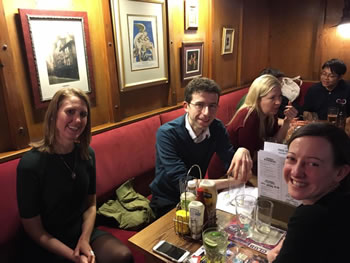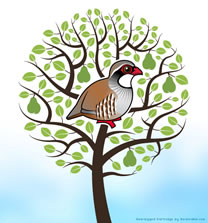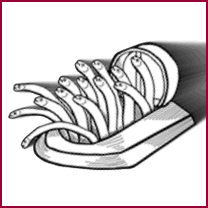
I learnt an interesting Japanese word and kanji today – 凩 (こがらし / kogarashi), which means ‘cold wintry wind’ or ‘the cold wind that reminds us winter is coming’. It is also written 木枯し or 木枯, and is considered ‘untranslatable‘ by some.
The character 凩 is a 国字 (こくじ / kokuji), that is one that was made in Japan rather than being borrowed from Chinese. It combines 几 (ki – armrest, desk, table, screen), which can also mean ‘to envelope; to wrap around’, with 木 (ki / moku – tree, shrub, bush, wood).
Other kokuji include:
– 凧 (いかのぼり; たこ – ikanobori; tako) = kite
– 凪 (なぎ; な.ぐ / nagi; nagu) = lull; calm
– 働く (はたらく / hataraku) = work
– 峠 (とうげ / tōge) = mountain peak; mountain pass; climax; crest
– 杢 (モク / moku) = woodworker
– 杣 (そま / soma) = timber; lumber; woodcutter
In Welsh there is a word that is similar to 凩: rhewynt, meaning an ‘ice-cold wind’, from rhew (frost, ice) and gwynt (wind, breath). There are also a number of other interesting wind-related expressions:
– gwynt carthen = breeze created by shaking a blanket (said comtemptuously of a preacher’s artificial eloquence)
– gwynt coch Amwythig = the east wind (“the red / sorching wind of Shrewsbury”)
– gwynt y creigiau = north-west wind (“wind of the [Snowdonian] rocks”)
– gwynt ffroen yr ych = the east wind (“the wind the ox’s nostril”)
– gwynt pilyn = breeze created by shaking a sack in order to separate the chaff from the grain when wwinnowing (“wind of a garment”)
– gwynt traed y meirw = the east wind (“the wind of dead men’s feet” – refers to the custom of burying people with their feet to the east)
Sources: http://www.sljfaq.org/afaq/kokuji-list.html, Geiriadur yr Academi, Geiriadur Prifysgol Cymru
Are there equivalents of 凩 (kogarashi) in other languages?
Or other interesting wind-related expressions?






